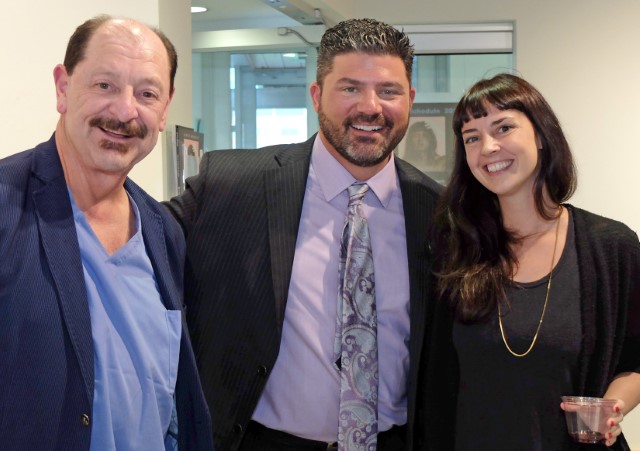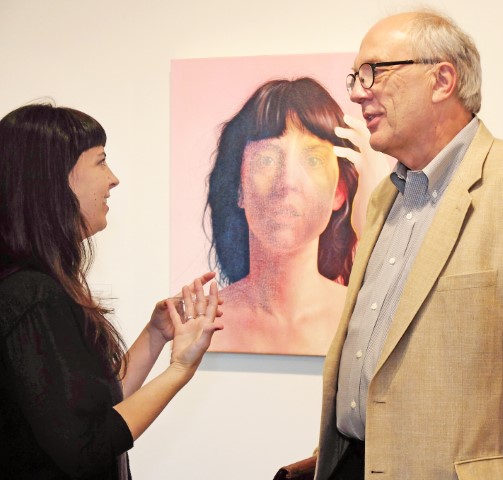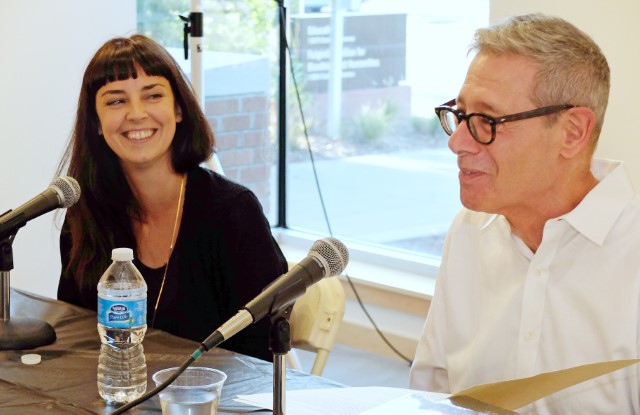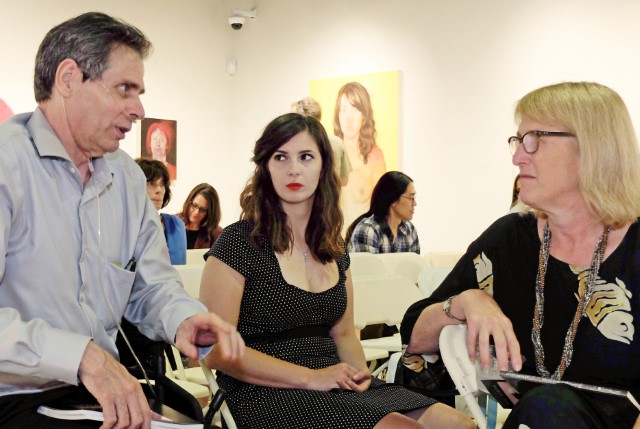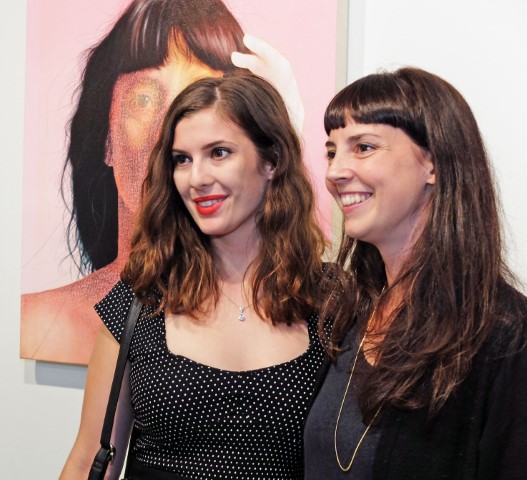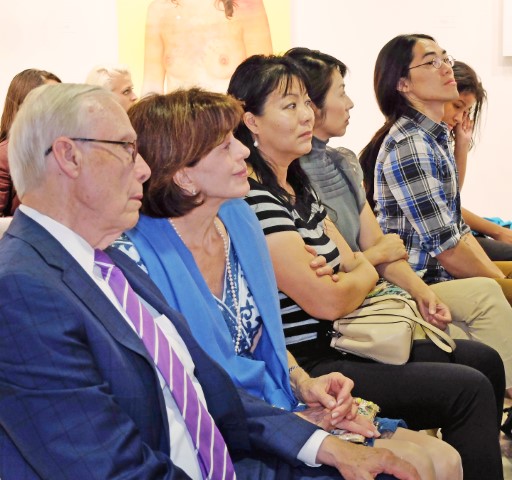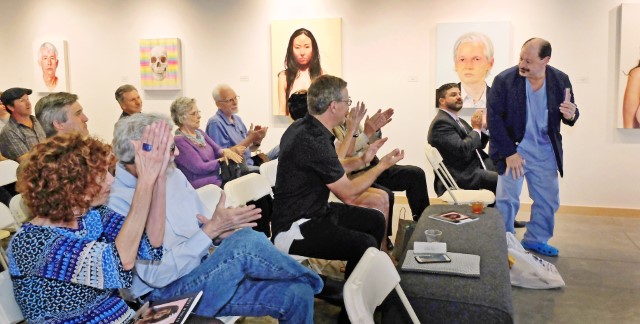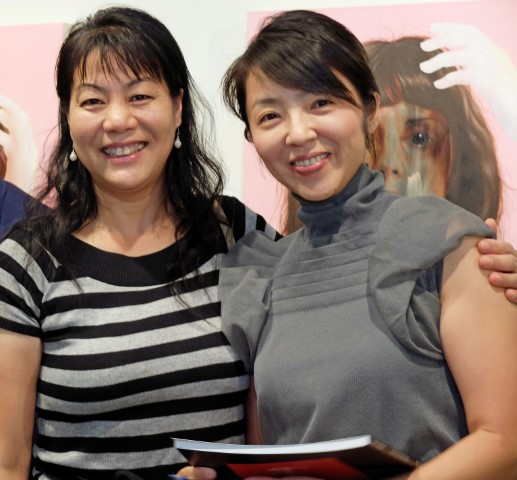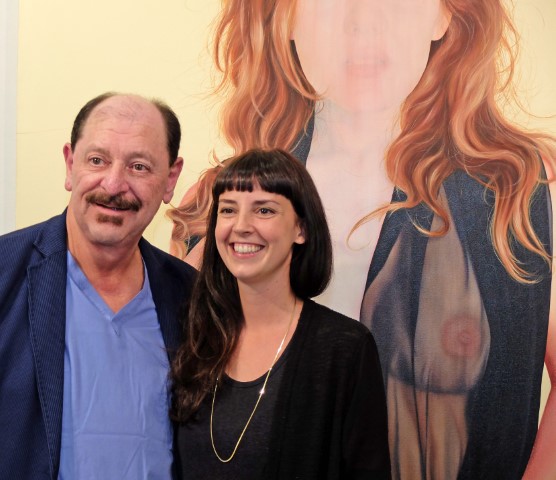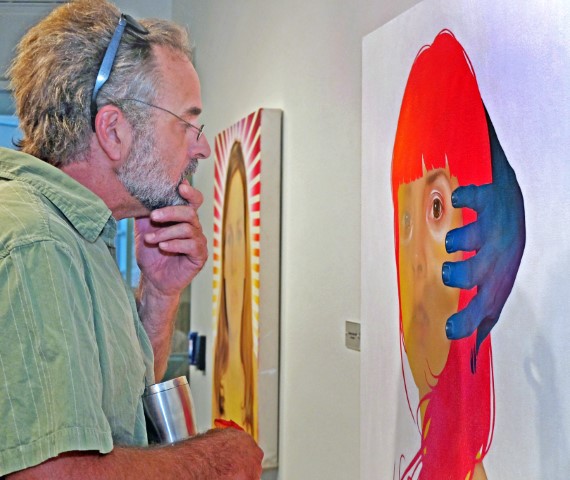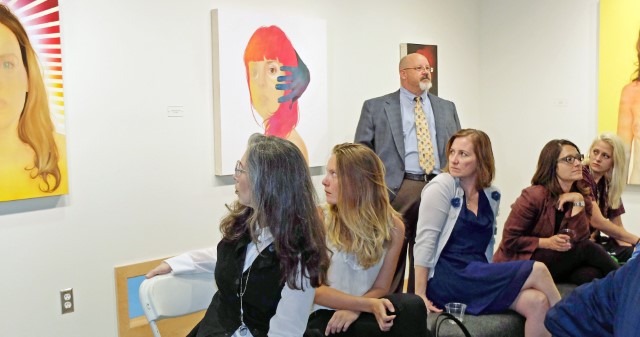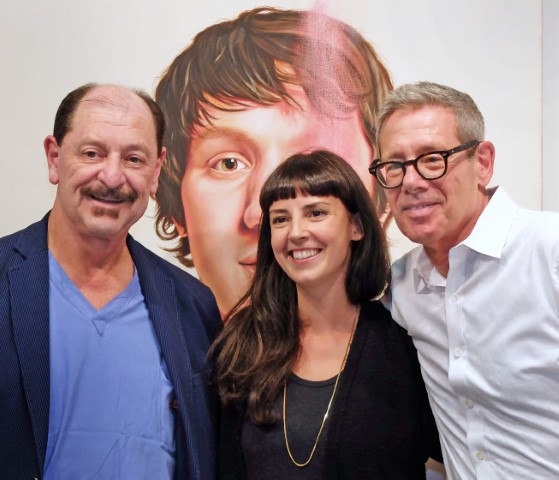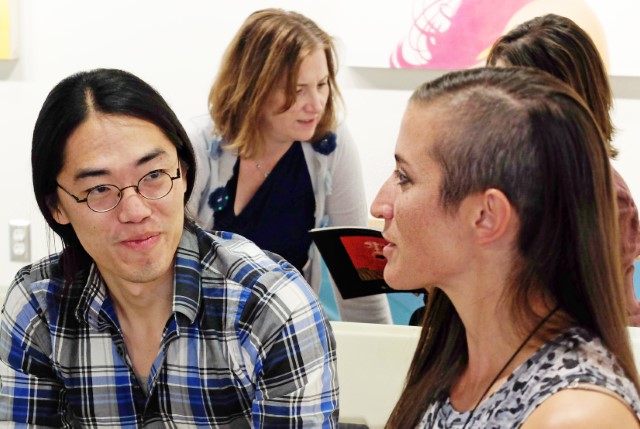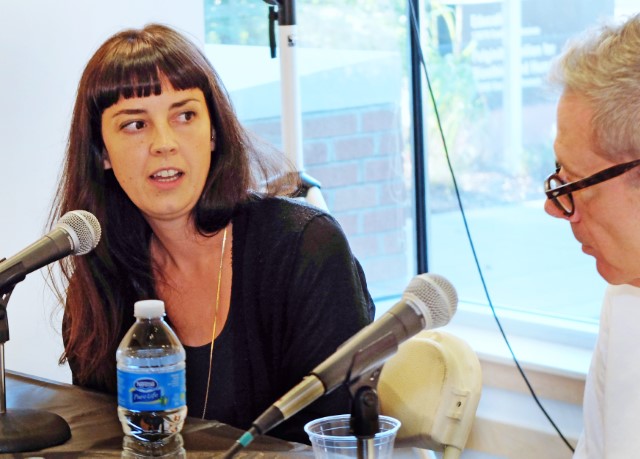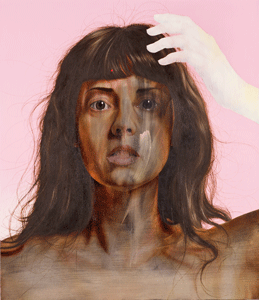 Exhibition of paintings from the collection of Wayne F. Yakes, MD, and curated by Simon Zalkind, on display at the Fulginiti Pavilion Gallery through November 5, 2015.
Exhibition of paintings from the collection of Wayne F. Yakes, MD, and curated by Simon Zalkind, on display at the Fulginiti Pavilion Gallery through November 5, 2015.Jenny Morgan
Now You See Me (Now You Don't)
 Exhibition of paintings from the collection of Wayne F. Yakes, MD, and curated by Simon Zalkind, on display at the Fulginiti Pavilion Gallery through November 5, 2015.
Exhibition of paintings from the collection of Wayne F. Yakes, MD, and curated by Simon Zalkind, on display at the Fulginiti Pavilion Gallery through November 5, 2015.
Portraiture is having a renaissance of sorts. From the mid-20th century to the present, the painted portrait surrendered its traditional functions to the photograph, and post-modernism completely abandoned the innocent, quasi-mystical notion that the truth of someone’s interior life could be conveyed by a representation of her outward appearance. Thus, the essential questions for any contemporary artist who paints portraits are two: Is she able to go beyond the photograph’s capacity to accurately render the face and body? Can the painted portrait function as a form of knowledge as well as a strategy for encountering truths about a subject’s interior life that expands and transcends the image’s representational accuracy?
Face to face with her portraiture, the viewer can’t help but notice Jenny Morgan’s astonishing technical bravura – sumptuous and ravishing in its seemingly effortless fluency. Her paintings are made hyper-real by her use of scale, by her painstaking attention to the most minute of details, and by her allegiance to the formalities of the photograph. Everything is accounted for with tremendous clarity. Unencumbered with props or superfluous staging, Morgan is able to conjure both the subject’s humanity as well as the singular “condition” that describes her existence in the immediacy of the moment, and she has a terrific knack for making pictures that are beautiful – beautiful in the sense that our encounter with them leaves us powerless to express the fullness, both intellectual and aesthetic, in which we recognize the beguiling radiance of our own transcendent source.
Simon Zalkind, Curator
Read Ray Mark Rinaldi's review in the Denver Post.

